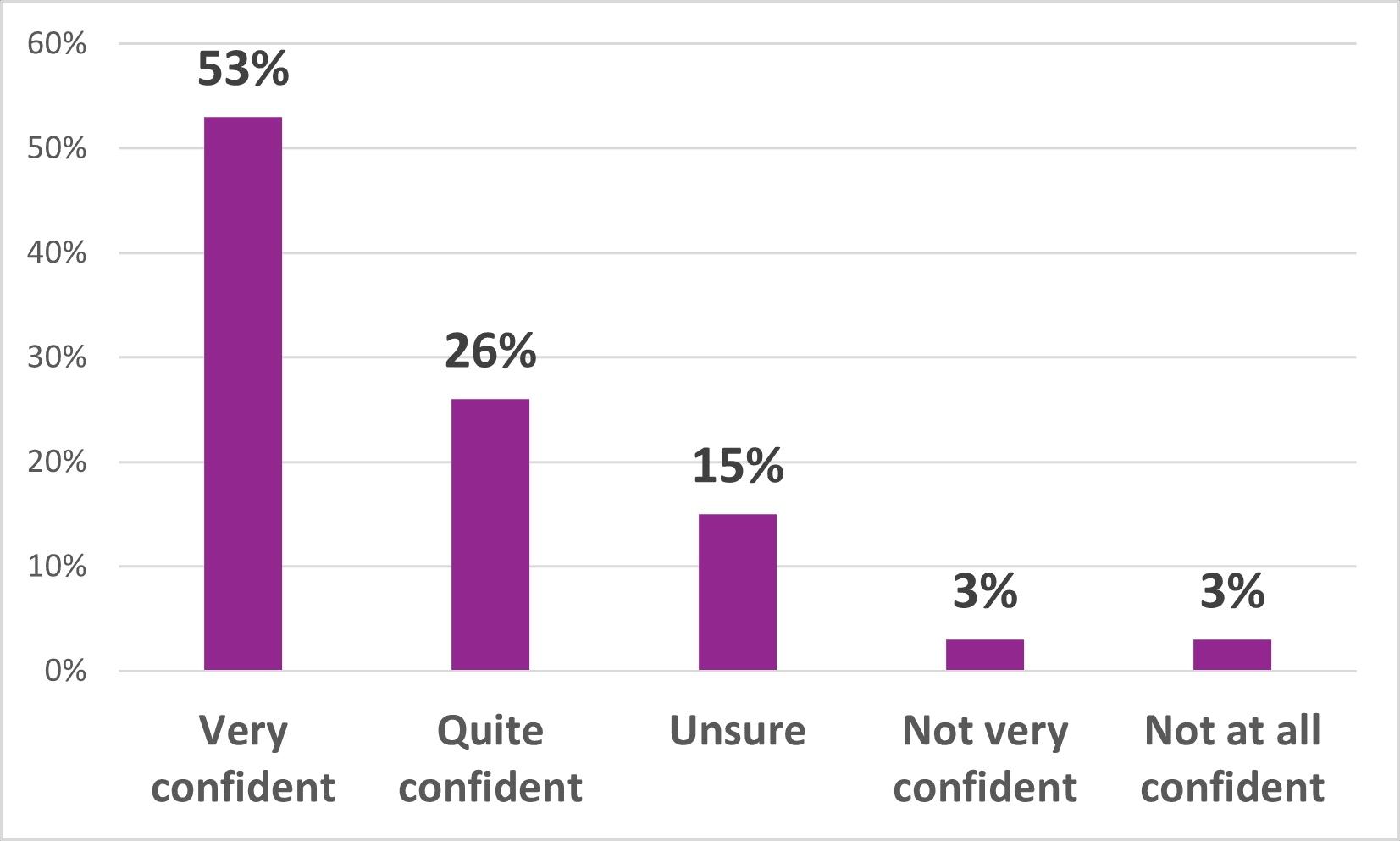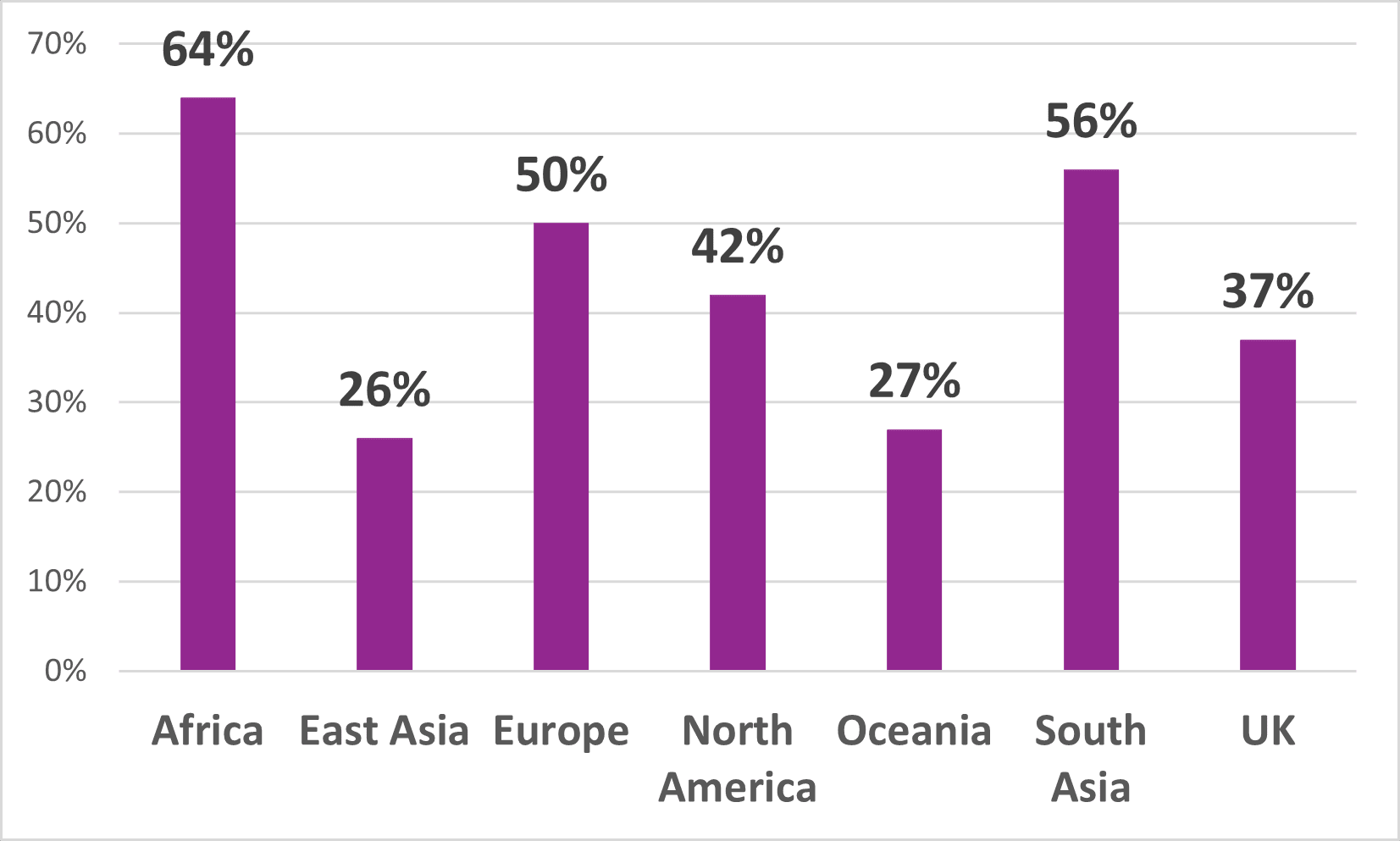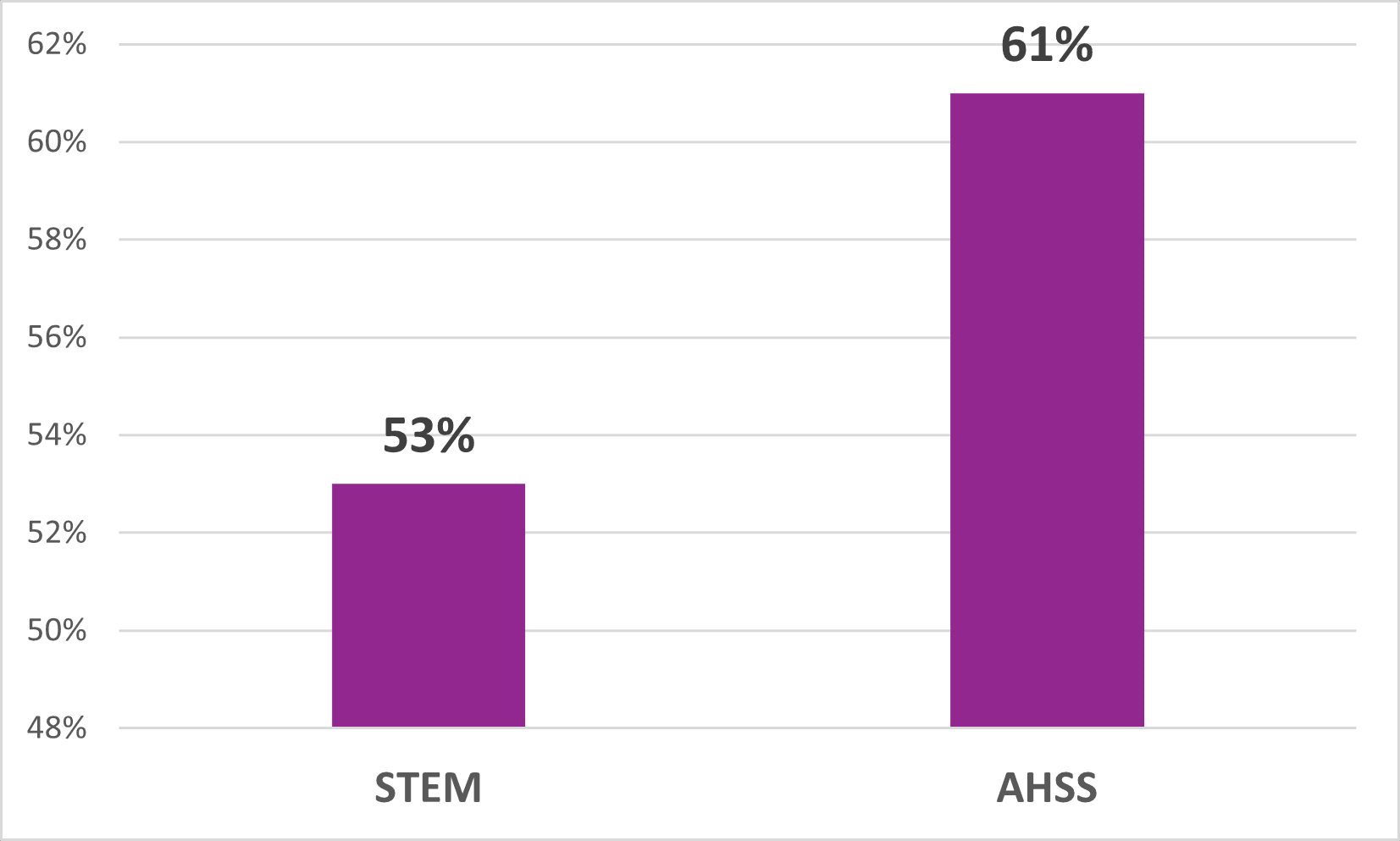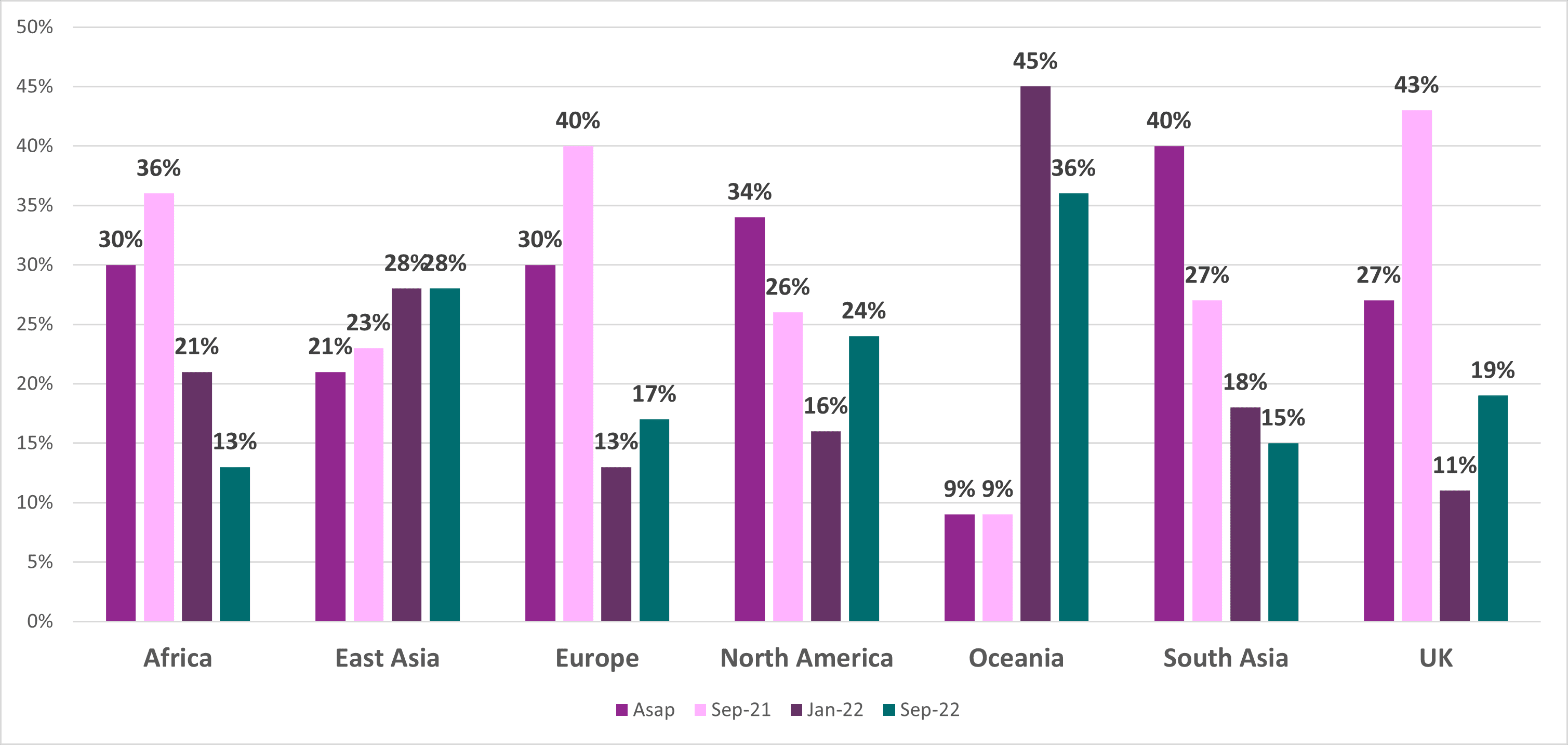
Taking the Pulse of PhD Recruitment in Spring 2021
Our Pulse tracker provides postgraduate marketing and recruitment insight, powered by the vast audiences and communities for our FindAMasters and FindAPhD platforms. Dr Mark Bennett takes an early look at some of the indicators for PhD study in 2021.
One of the many strange experiences I had around this time last year – along with spotting a hilariously large stockpile of toilet paper in my neighbour's shed and being lectured on "split-vowel diagraphs" by my four-year-old son – was a daily conversation with a current PhD student on my team. He was in the final year of a government-funded Bioscience doctorate, his research was at a crucial stage and he had absolutely no way whatsoever of accessing any of the experiments in his lab. So he adapted, rescheduled and worked with his supervisor to approach the data he needed in a different way.
It's a testament to the character of PhD study that those students whose work has been most substantially disrupted by the pandemic (there simply isn't any way to carry out gel electrophoresis or examine obscure medieval manuscripts online) have, with the help of their universities, found ways to carry on regardless.
You might be forgiven for thinking "that's admirable enough if you're in the middle of a doctorate and have the perseverence to get it finished, but no one would want to start a PhD right now, would they?". Well, actually... you can probably see where this is going.
A few words on the data
Last month we launched our new Pulse tracker for Postgraduate Taught study, measuring attitudes and behaviour with our prospective student audience and community at FindAMasters; this month we've added Postgraduate Research to the mix, via our FindAPhD platform.
So far we have data from over 1,600 potential PhD students, collected during the second half of April. That might sound like a lot (and it would be for a 'traditional' PGR survey) but Pulse is designed to work by tracking and segmenting much larger datasets (for comparison, last month's PGT report was based on more than 10,000 responses collected over three months).
So think of this post as a bit of a 'sneak peak' at what Pulse is capturing for PGR interest, with much more detail yet to come. I think it's interesting, but I'll need to include a couple of caveats as we go.
Yes, people want to do a PhD right now
Anyway, one thing you definitely can do with responses from over a thousand prospective PhD students is measure overall interest in PGR study. It's high:

Overall confidence in PhD study (April 2021)
Taken together, the proportion of people who say they're "confident" or "very confident" about beginning a PhD in the coming year is roughly 80%. This probably benefits from the fact that we're surveying in April, when several key audiences were experiencing easing of lockdown restrictions and other positive news stories (more on that in a moment).
That said, these results match some of the research we did during the first wave of the pandemic, when commitment to PGR was actually a bit 'stickier' than it was for PGT. More anecdotally, I can also say that the thousands of awesome people I spoke to at our virtual study fairs last month were very definitely interested in beginning a PhD.
How does confidence vary by region?
Just as with last month's PGT data, we do see some significant variation in attitudes towards PhD study across different regions and student recruitment markets. This is to be expected, under the current circumstances. But it's also where I have to introduce those caveats as segmenting by a range of audiences leads some populations to become much smaller than others.
First up, here are the results, comparing proportions of "very high" confidence for students in different parts of the world:

Confidence in PhD study by region
As it happens, the regions with the lowest confidence levels – Oceania and East Asia (including China) – are also those with the smallest populations within this snapshot. That isn't to say the results aren't plausible (unfortunately, reduced confidence amongst prospective students in Australia and New Zealand makes sense at the moment) but we should still take them with a pinch of salt until the dataset is a bit larger.
Looking at other regions, we can see that confidence remains very high in Africa and South Asia. This may seem strange given the current situation in places like India, but it probably reflects the fact that most of these students will be seeking to study abroad. Their attitudes likely reflect perceptions of destination countries (such as the UK and USA) rather than domestic circumstances. We'll be exploring this a bit more in future.
Confidence in Europe, North America is a bit more ambiguous and, for the UK, it's relatively low. I'd put the latter down to prospective British students 'keeping their powder dry' as prospects for the 21-22 academic year take shape; the timing in relation to UKRI deadlines (most of which close by Feb-March) may also be a factor. Either way, this makes it all the important to carry on tracking these attitudes, which is exactly what Pulse is for.
STEM vs AHSS
One of the most interesting things we saw in the PGT Pulse data was an apparent 'rebound' in STEM interest. Whereas levels of 'high confidence' for AHSS had dropped to around 45% and then recovered to 50%, STEM interest fell to 42% in February but then rose to 57% in March.
I mention this, because the picture for PGR study actually looks very different:

Confidence in PhD study by subject
We don't have as many months of data to compare here (yet) but it looks like it's Arts, Humanities and Social Sciences subjects that are seeing a very high level of interest ahead of the 2021-22 academic year. STEM confidence is respectable at 53%, but it's not quite as impressive – perhaps revealing a greater wariness amongst students who need the best part of three years access to a lab. Either way, this is a good reminder of the need to distinguish between PGT and PGR when talking about "postgraduate" study.
Intended start dates
The increase in January start options and other 'alternative' start dates for Masters-level programmes is a well-documented result of the pandemic so far. Entry points for PhD study can be much more idiosyncratic (you can begin certain types of project as and when you like) but the actual flexibility can be overstated (in practice, funding is key and tends to follow a fairly set calendar).
As such, students' intentions as of April broadly reflect the academic year in their home country:

Intended PhD start date by region
Setting aside Australia and New Zealand, most audiences are targetting a September 2021 start, but over 25% are ready to begin as soon as possible. We'll be drilling into these results as we collect more data – factoring in dimensions such as subject area and funding status – but, as with PGT, these results indicate that there's no bad time to reach a prospective postgraduate audience.
What's next?
Being able to quickly collect and analyse results like these is one of the great things about Pulse, but the real aim is to build up a much bigger picture of PGT and PGR recruitment over time. And, the more data we collect, the more effectively we can segment it to understand how and when different students are approaching postgraduate study.
Our next couple of reports will aim to take advantage of this, looking in detail at students' intended destinations as well as the shape of their application journeys. You can subscribe now for updates on these, plus other insight and resources specifically for postgraduate marketing and recruitment.
In the meantime, I'd love to hear any questions or comments about the Pulse data so far. You can email, or find me in the usual internet places.
You may also like...
Taking the Pulse of PGT recruitment
Take a look at the latest Pulse data for Masters-level study, based on responses from over 10,000 students.
The legacy of COVID-19 in postgraduate marketing & recruitment
Matt Burton of Kaplan Open Learning offers his perspective on the longer term trends for postgraduate education.


